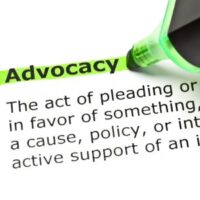Can Florida Prosecutors Use Your Past Crimes to Convict You of Felony Battery?

Florida law defines “felony battery” as intentionally touching or striking another person against their will to the point where it causes great bodily harm, permanent disability, or permanent disfigurement. In other words, if you beat someone else up on the street unprovoked and they sustain any serious injury, you can be charged with felony battery. Of course, you can argue self-defense if you believe that you were responding to an actual or imminent threat of harm from the other person.
Florida Appeals Court Orders New Trial for Man Accused of Attacking Nightclub Bouncer
If you are charged with battery or any other criminal offense, as a general rule the prosecution cannot use your prior criminal record against you at trial. There are, of course, exceptions to this general rule. One such exception applies to the use of hearsay. Essentially, if a witness other than the defendant offers hearsay statements that could exonerate the defendant, the prosecution is then allowed to use a defendant’s prior convictions to impeach that testimony.
Recently, a Florida appeals court actually overturned a felony battery conviction because the trial judge improperly applied this exception. This case, Fernandez v. State, involved a defendant accused of beating up a bouncer at a Sarasota nightclub. On the evening in question, the defendant visited the club with his father-in-law and their respective wives. At one point, the bouncer ordered the father-in-law to leave. The father-in-law and the bouncer then got into an argument at the entrance to the club. Someone–later identified as the defendant–then struck the bouncer, who fell to the ground. The defendant then continued striking the bouncer as he laid on the ground.
At trial, the defense’s theory was that the bouncer had been threatening the defendant’s father-in-law. The defendant therefore acted to protect his father-in-law. The father-in-law testified that the bouncer was “aggressive” and he was afraid of being physically harmed. He maintained that his son-in-law was “continuously trying to extinguish the situation.”
In response to this testimony, prosecutors sought to introduce the defendant’s prior criminal exception under the hearsay exception, which the trial judge allowed. The jury subsequently found the defendant guilty. On appeal, however, the Florida Second District Court of Appeals said the trial judge erred in allowing the jury to hear about the defendant’s prior record.
The appellate court explained that the father-in-law’s testimony was not hearsay. Hearsay is an out-of-court statement offered to prove the truth of the matter asserted. The father-in-law testified as to what he saw, not what someone else told him happened. Since there was no hearsay, the prosecution could not use the defendant’s prior criminal record to rebut or impeach what the father-in-law said. And given that the introduction of the defendant’s record likely affected his credibility with the jury, the Second District said a new trial was warranted.
Contact AsiliA Law Firm Today
In any criminal trial, it is important to hold the prosecutors accountable and ensure they only present evidence which is valid and admissible under Florida law. An experienced Miami battery attorney can help to ensure that you receive a fair trial. Call AsiliA Law Firm today at 786-420-3014 or contact us online to schedule an initial consultation.
Source:
scholar.google.com/scholar_case?case=11063843797796032887
